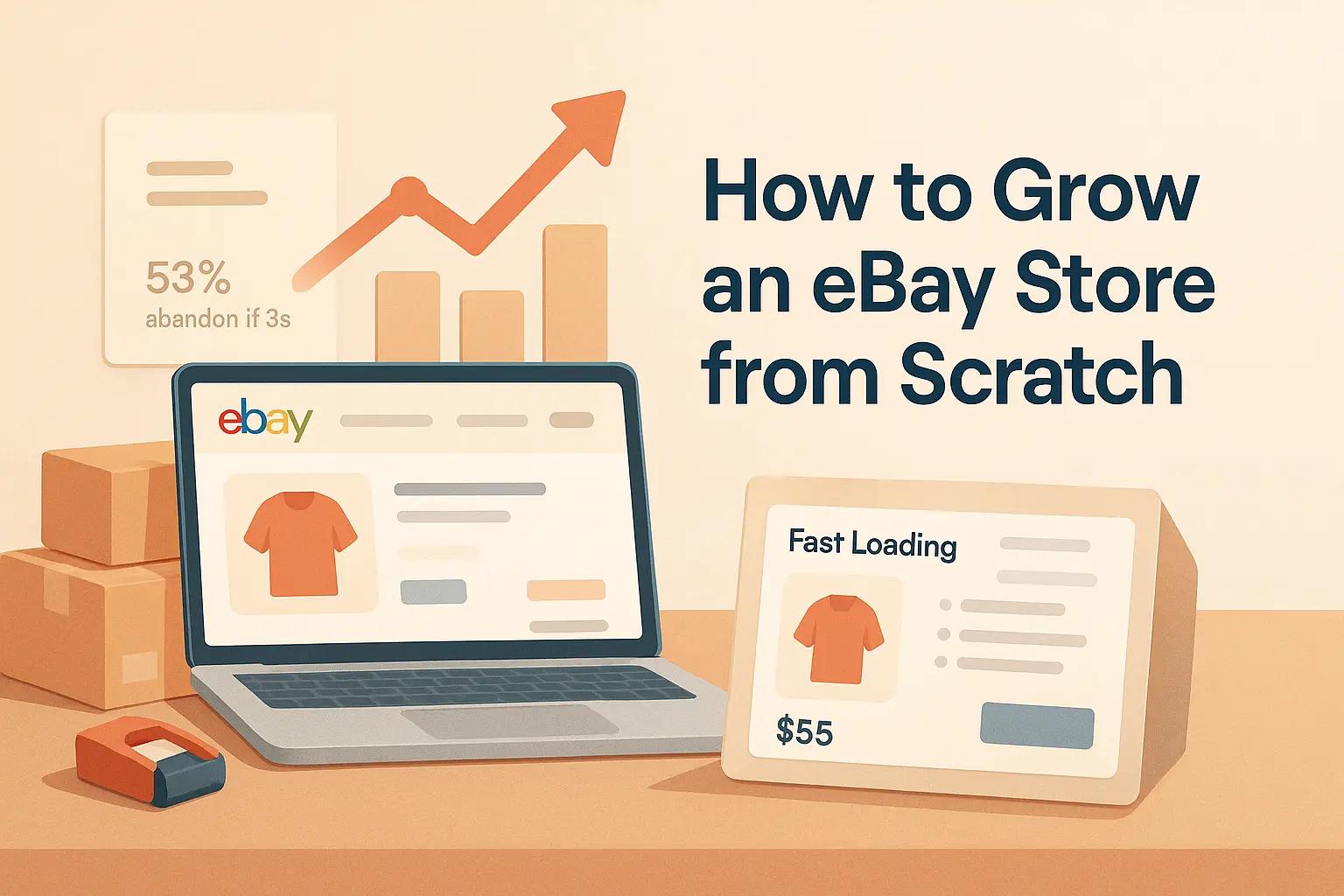
Skip the Fluff. This Is What Actually Works.
Let’s assume you’ve already signed up for an eBay seller account, verified your identity, and picked a product category. You’ve got the basics covered.
This guide skips beginner fluff and gets to what most eBay guides ignore: how to grow consistently without relying on hacks that stop working in 3 weeks.
1. Choose Products You Can Actually Manage

Most first-time sellers go broad: clothes, electronics, seasonal junk.
Instead, go narrow but stable. Choose:
- Items you can easily re-stock
- Products that won’t trigger returns often
- Categories with predictable shipping (not fragile)
Skip: Vintage items, unless you’re ready for long-tail buyers and slow turnaround.
Why it matters: Your first 100 sales will set the tone for eBay’s algorithm. Consistent shipping and low return rates unlock visibility. If you're always refunding or late shipping, you’ll be stuck in the shadows.
2. Write Listings That Win the Algorithm

Good listings don’t just sell they rank.
Structure to follow:
Title:
- Include brand, model, item type, condition, and key features.
- Example: “Nike Air Max 270 Shoes – Size 10 – Black – Like New”
Item Specifics (Do not skip these): These are structured data eBay uses for filtering. Add everything you can material, color, UPC, etc.
Description:
- Start with 3 bullet points: What is it? What’s its condition? What’s included?
- Then a 2–3 sentence paragraph to humanize it.
3. Use Smart Inventory Tools (Not Just Excel)

When you hit 50–100 SKUs, Excel becomes a liability.
Here’s what you need:
| Need | Tool to Try |
|---|---|
| Centralized inventory | ecomdash, Sellbrite |
| Sync with Etsy/Amazon | List Perfectly, Vendoo |
| Bulk relisting/scheduling | InkFrog, SixBit |
If you're not ready to pay, Google Sheets + Zapier can work for basics. But don’t wait too long to upgrade.
Also read: Automating eBay Inventory Without Losing Control
4. Earn Trust Without Begging for Reviews

You don’t need to message every buyer with “Please leave a review!”
Instead:
- Ship on time (or earlier)
- Use clean packaging with a thank-you note
- Make return policies very clear
Once you’ve crossed 50 positive reviews, you’ll notice your conversion rate jumps.
Note: eBay uses seller feedback to prioritize listings in search.
Related: How to Collect Reviews Without Breaking Rules
5. Track the Right Metrics (It’s Not Just Sales)

Here’s what beginner sellers miss: Sales volume isn’t the whole picture.
Start tracking:
- Click-through rate (CTR) on listings
- Conversion rate (CR)
- Repeat buyers
- Return rate
- Defect rate (eBay metric)
Use eBay’s Seller Hub > Performance > Traffic Report tab. Set a reminder to check weekly.
You’ll spot issues way earlier than your competitors.
Related: What to Track When Your Shopify Ads Flop
6. When to Expand and Where
Once you’re stable:
- 20+ repeat buyers
- Over 100 sales/month
- <2% return rate
Then, it's time to cross-list. Start with Etsy (for handmade/vintage) or Amazon (for branded items).
Use tools like List Perfectly to duplicate listings in minutes.
Go deeper: Cross-Listing Tips for Etsy, Amazon, eBay Sellers
Also consider:
- Building a Shopify site for DTC orders
- Connecting inventory to Shopify and using eBay as one of the sales channels
Explore: Best Shopify Apps That Actually Drive Sales
Conclusion: It’s a System, Not a Hack
There’s no one “secret” to growing an eBay store.
But there is a repeatable system:
- Pick manageable products
- Write for the algorithm (and the buyer)
- Set up proper tools
- Build trust passively
- Track beyond sales
- Expand with intent
If you do this consistently, your growth will compound.

Custom video production at scale
Aneeverse covers all video needs whether you're telling your brand story, launching a product or running ads. Discover how we can help you scale.
